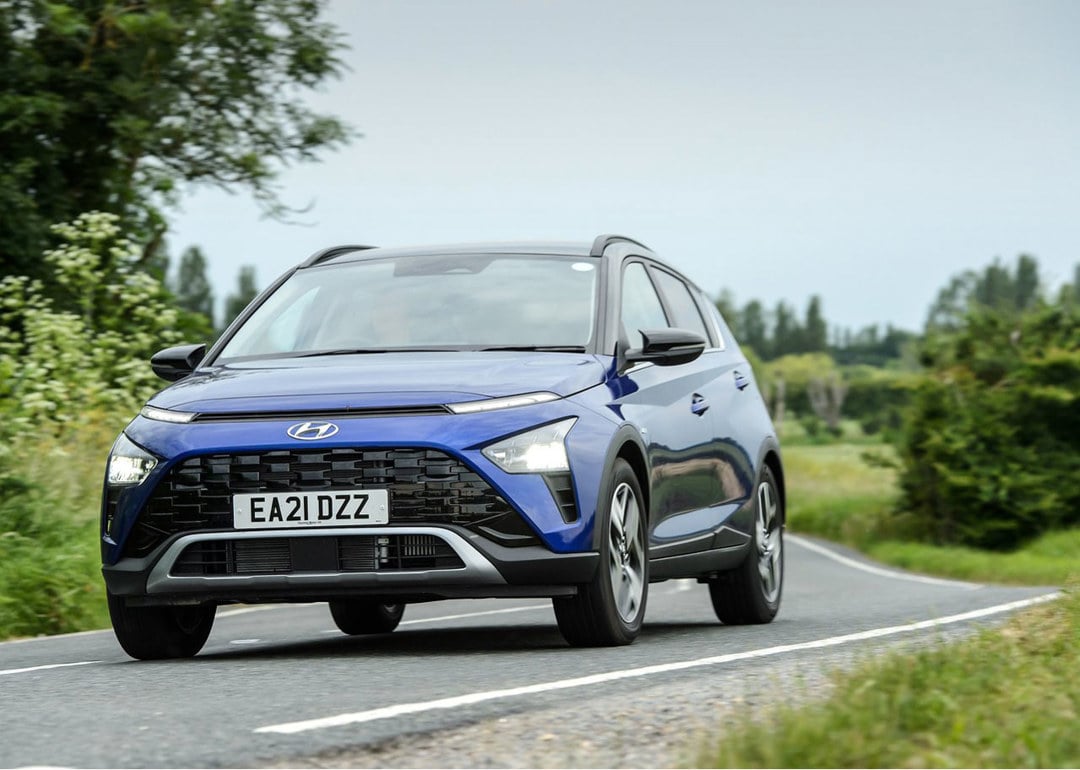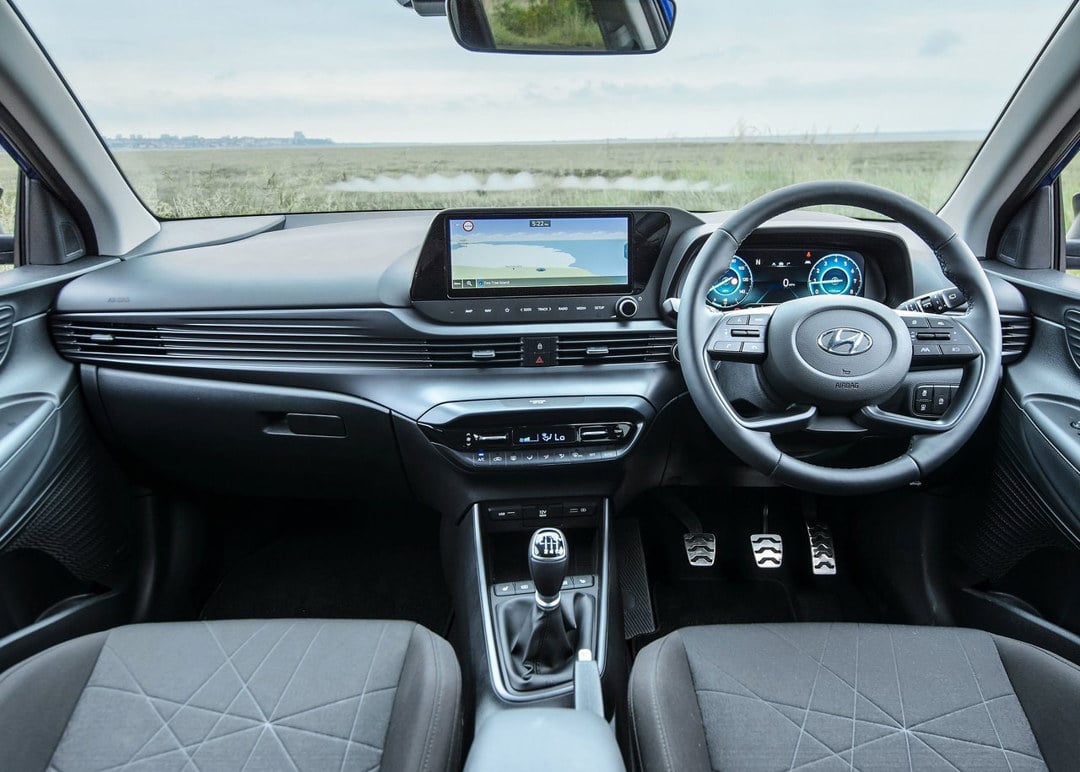Customer Reviews

1.6 out of 5
Martin Hyundai Bayon 1.0 TGDi 48V MHEV SE Connect *In Stock*
Published on: 4 July 2023

1.6 out of 5
Martin Hyundai Bayon 1.0 TGDi 48V MHEV SE Connect *In Stock*
Published on: 4 July 2023
This review was originally published in 2023. Vehicle specification correct at time of publication. For the latest Hyundai Bayon lease deals and full vehicle specs, visit our Hyundai Bayon model page.
The Hyundai Bayon is a small SUV that provides a good balance of practicality and performance. Coming with a unique exterior, two punchy engines, and a well-built interior, the Bayan would be a solid choice for a family SUV.
Rivals to the Hyundai Bayon include the Skoda Kamiq, Volkswagen T-Roc, Nissan Juke, and Ford Puma.
Our Hyundai Bayon review covers:
The Hyundai Bayon is a unique-looking car. It has a huge front grille and split headlights that make for quite a dominating road presence. Towards the rear, you'll find a combination of curved brake lights and a thin panel running across the boot.

Although a small SUV, interior space isn't restricted in the Bayon. There's plenty of space in the front for both leg and headroom, whilst taller folk shouldn't have any issues with headroom in the rear. There are all the typical compartments for storage, but Hyundai has added a tray in front of the gear lever, which is handy.
Boot space for the Bayon comes in at 334 litres, which can be extended to 1115 litres with the rear seats split 60:40. This means the Bayon falls short of its rivals, such as the Ford Puma and Skoda Kamiq who both boast a bigger boot.
For interior quality, Hyundai has gone for practicality rather than quality. Soft-touch materials are hard to come by, and the dashboard is littered with hard plastics. Regardless, the interior is well-built and will certainly last. If you want more quality, look towards the Ford Puma or VW T-Roc.
Coming standard on the Bayon is an eight-inch touchscreen infotainment system and a 12.25-inch digital cluster. The infotainment system is reactive and comes with Apple CarPlay and Android Auto, while the digital cluster displays sharp graphics that are easy to read.
Three trim levels are available for the Hyundai Bayon: SE Connect, Premium, and Ultimate.
The entry-level SE Connect comes with 16-inch alloy wheels, cruise control with speed limiter, forward collision assist, rear parking sensors and rear-view camera, automatic headlights with dusk sensor, and lane keep assist.
Premium adds to this with 17-inch alloy wheels, a chrome finish window surround, heated front seats and steering wheel, LED headlamps, rear combination LED lights, privacy glass, and a 10.25-inch infotainment system with a wireless charging pad.
The range-topping Ultimate comes with a black and grey interior, keyless entry and engine start/stop, two-tone roof and wing mirrors in black, and a Bose premium system with a Subwoofer.
Two 48V mild-hybrid engines are available for the Bayon. They're both 1.0-litre engines and can either be combined with a six-speed manual transmission or a seven-speed dual-clutch transmission.
The entry-level T-GDi 100PS (manual transmission) is our top pick. It has a top speed of 114mph, can reach 0-62mph in 10.7 seconds, and returns a fuel economy of 53.3 mpg. If you choose the DCT transmission, performance drops only slightly.
The T-GDi 120PS is slightly more powerful, coming with a top speed of 115mph, 0-62mph in 10.4 seconds and a combined fuel economy of 53.3mpg.

For a car with relatively conservative engines, the Bayon is pretty fun to drive. When driving around town, there's a good amount of visibility which makes switching lanes and parking an absolute breeze. Road noise increases at higher speeds, but even so, it's not unbearable.
If tackling some twisty roads, the Bayon doesn't lean too much in corners, meaning you can be confident and don't have to slow down too much when taking a tight bend. The only downside is that the steering is quite passive and could do with a bit more feedback through the steering wheel.
Also, both the six-speed manual and seven-speed dual-clutch transmission are smooth and efficient, making for a pleasant experience when accelerating to motorway speeds.
Prices for the new Hyundai Bayon start from £20,340.00 OTR* or to lease from £215.54 per month.
Looking to lease the Hyundai Bayon? Nationwide Vehicle Contracts are one of the UK's largest car leasing brokers and have a range of leasing deals available to suit your every need.
Leasing may be cheaper than an outright purchase thanks to a low initial deposit, fixed monthly payments, and a range of benefits included in your deal, such as road tax and breakdown cover.
*' On the road' price correct at time of publication and includes one year's road fund license, DVLA first registration fee and number plate fee. Prices are subject to change, always check with your nearest retailer.
Last updated: 30th May 2023
Our Standard Opening Hours
Monday to Friday 9am to 5.30pm
Christmas Opening Hours